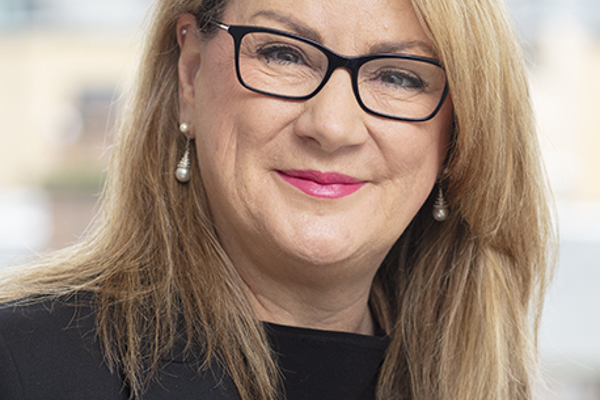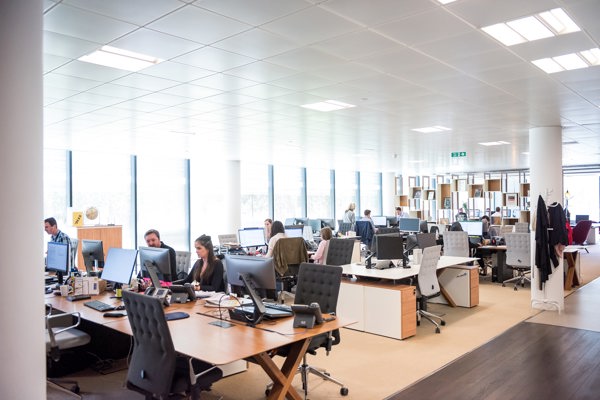What initially attracted you to the field of personal injury law, and how did your experience as a trainee at the firm influence your decision to pursue this area of practice?
I was lucky to have a well-rounded traineeship which allowed me to gain experience in various departments throughout the firm, including corporate, commercial property and litigation. My experiences in each of these departments was incredibly varied, although what they had in common was that from day one as a trainee in each department, I was given the opportunity to get involved and contribute. Regularly moving departments was a great way to get to know people throughout the firm. It was also an excellent way to learn about the types of work and decide which one I would enjoy the most. For me, litigation felt like the best fit. Court work was challenging, interesting and exciting, and I knew that no two days would be the same. I enjoyed building relationships with clients and personal injury law was an area where I felt I could make a difference and have an impact (whilst also living out my Ally McBeal / Elle Woods dreams!).
Could you share some key moments or experiences during the time that shaped your professional growth and led you to where you are today?
As a litigation trainee, we had (and still have) a court rota. There were always a number of instructions which had been provided by colleagues on any given day and I would head up to court armed with instructions. In those days, you would sit at court for hours waiting for your cases to call whilst chatting to solicitors from other firms. It was always a good place to learn about what was going on in other firms. Gossip aside, this also gave me the opportunity to watch how other solicitors dealt with being put on the spot by the Sheriff.
These experiences taught me just how important it is to always be prepared and to take time to understand the detail of your case and the other side's case, so that you can properly represent your client. This knowledge gives you confidence and the ability to think clearly when tasked with the often tricky job of trying to persuade a Sheriff to agree with whatever outcome is best for your client. This was excellent training. I'm sure it is due to those experiences that I still tend to over-prepare for most situations! Organisation is also key - there is nothing more stressful than rushing around trying to find out where and when your case is calling and hoping you haven't missed it!
What specific skills or qualities do you feel have been crucial to your success, and how have you honed them over time?
Good communication skills are crucial to a successful career as a lawyer. The ability to communicate with clients, colleagues, and other lawyers will determine how effective you are in your role. As an example, to properly represent your client in pursuing their personal injury claim, you need to have a good client relationship and your client must trust you. Whilst trust is often earnt through doing what you say you'll do when you said you'd do it, it's also built on good communication. This requires you to keep your client updated and ensure they understand both the litigation process and your advice. In my view, only when you have this trusting relationship, will your client be comfortable divulging the often sensitive information which you need to progress their claim and recover their full loss. If you do not have this relationship, you cannot effectively represent your clients' interests and get the outcome they deserve.
In my relationships with clients, I always try to explain things in plain English. Whilst this is not always an easy task for many legal concepts, in my opinion the real test of whether you understand what you're talking about is whether you can explain it to someone who hasn't studied the law! I always try to keep this in mind when communicating with clients.
Your role, responsibilities, and client relationships have undoubtedly evolved throughout your career. Can you give us some insight into your experience?
I've been lucky enough to be involved in a number of high value, complex and significant cases throughout my career. In my path from trainee to partner, there has been a steady progression towards taking responsibility for cases and managing client relationships. To help with this progression, it's always beneficial to be pro-active. For example, when you're working on a case, you should be anticipating the next steps to make sure you consider what needs to be done. This also allows you to keep your client updated before they feel they have to ask you. Whilst your career goal may be to step up and take more responsibility, it's also important to know when to seek the advice of your colleagues. This should not only be when things go awry with a case. I have often found that talking through a case with a colleague helps to bring out the full picture allowing for a fresh perspective or a chance to consider a different approach.
What factors have influenced your decision to remain with Morton Fraser MacRoberts throughout your career, and how has the firm's culture contributed to your professional satisfaction and growth?
I have remained at the firm throughout my career as, quite simply, I've always found it a great place to work. The culture and my colleagues have enabled me to get a balance that works for me between my work life and my personal life. Don't get me wrong, as a litigator there are times when the hours are long and no matter how organised you are, you can't help an opposed motion calling just as you're trying to get away on your holidays! The difference here is that when these things do happen, there is support from other members of team. I've put in numerous flexible working requests over the years to allow me to juggle the demands of family life, and spend time with my two daughters. When working flexible hours, I've never felt that I've had to compromise on the type of work I'm doing and my commitment to my job has never been called into question. The work has always been interesting and varied and at times when I've wanted to focus on other areas of work or there have been business development opportunities I've wanted to pursue, I've always been supported.
As a partner, you play a significant role in mentoring junior lawyers. What advice would you give to those starting their legal careers?
I remember being given two pieces of advice on my first day as a trainee. The first was that confidence comes not from knowing all the answers, but from knowing where to find them. So, don't feel pressure to provide advice on the spot and do take time to consider all the issues. The second piece of advice - or perhaps a warning - was that being a lawyer is not a 9 to 5 job. This is certainly true and there are times when flexibility is required to meet the demands of the job, attend training and networking events, and travel to courts across Scotland or beyond. Whilst this can be demanding, there are countless opportunities which come from getting involved. The job also spills into all areas of your life as no matter what social or family gathering you are it, regardless of which are area of law you practice, whenever someone has a legal query they will ask you for your opinion!


